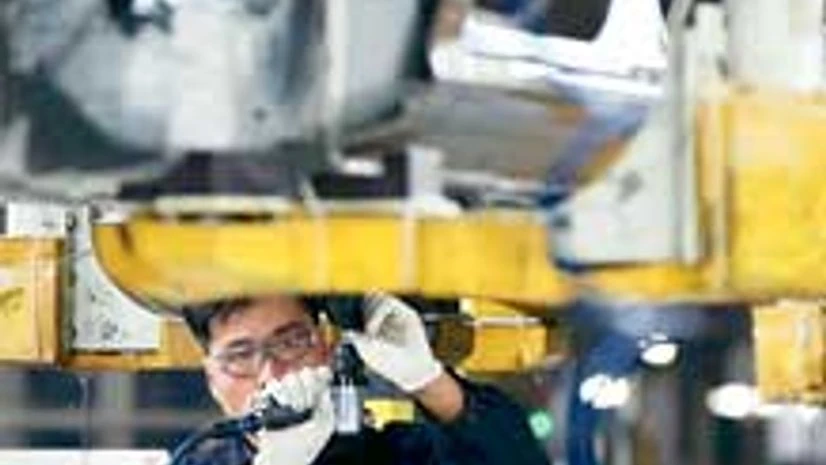China's factory sector grew at its fastest pace in six months in September, a preliminary survey showed on Monday, adding momentum to a tentative turnaround in the world's second-largest economy since the middle of the year.
The earliest reading of China's economic performance in September reinforced confidence the government could meet its growth target for this year, and boosted Asian stocks as investors hoped it was a precursor of more goods news.
The flash HSBC Purchasing Managers' Index (PMI) climbed to 51.2 from August's 50.1, hitting a high not seen since March, with 10 of 11 sub-indices rising in September.
More From This Section
After cooling in 12 of the last 14 quarters, the economy finally looks to be stabilising, though some analysts are concerned the jump in activity is being fuelled by excess credit and investment.
Exports staged a promising comeback in September, the PMI showed, with new export orders jumping 3.6 points to a 10-month peak of 50.8. It was the first time in six months that export orders were above 50 points, the level that indicates expansion.
Encouragingly, domestic demand also showed resilience, with new orders rising to a five-month high.
Lu from Bank of America-Merrill Lynch said rising stocks of finished goods and raw material purchases suggested companies were replenishing inventories and driving the spurt in manufacturing.
"Good data since August means that markets should not expect a big stimulus package," he said, adding authorities were likely to continue supporting growth at the margins by raising spending on railway and public housing construction.
No Mystery
Monday's PMI is the latest in a run of better-than-expected data that suggests the economy is on the mend, including factory output and export figures for August.
In July and August there were concerns that growth could be slower than the government's target of 7.5%, which would already be the slowest growth in more than two decades. Now, most analysts now believe the 2013 target will be met.
Yet some economists warn that Beijing is relying on traditional growth drivers of investment and exports to meet that target, even as it looks to steer the economy away from them towards better quality, consumption-led growth.
"There is no great mystery about the recent economic turnaround. Indeed, it would have been a surprise if it hadn't happened," said Mark Williams, an economist at Capital Economics.
"The big increase in spending has been in infrastructure-related investment," he said. "This is in turn has triggered a surge in output from heavy industry."
Analysts expect the government to announce a blueprint for economic reforms at a party plenum in November, including measures to reduce control over the yuan and interest rates market.
"We expect the government to shift its focus away from the speed of growth, towards efforts to rebalance the economy and improve the quality of growth," Nomura economist Zhang Zhiwei said, adding the current bounce would not last beyond November.
"We maintain our forecast of 6.9% economic growth in 2014," he said.

)
